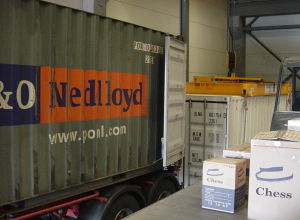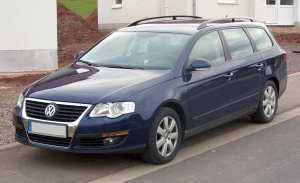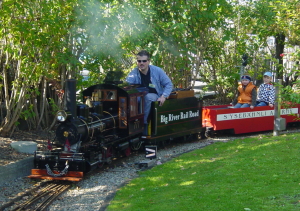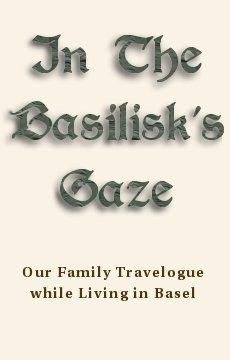Tourists No More
 Friday, May 8, 2009 at 12:54PM
Friday, May 8, 2009 at 12:54PM Slowly we reconstituted the paraphernalia of life. We had been living out of our suitcases for eight weeks when the Rhine barge bearing our container chugged into Basel. Because our permanent flat wasn’t available for another two months, we couldn’t take delivery of all our goods.  But we managed to convince the moving company to let us extract some boxes as they emptied the transport container into a storage one (pictured at right). We would be moving these extra boxes to the new apartment ourselves, so we didn’t want to take too many. But the weather was already turning cold, and we had only summer clothes with us.
But we managed to convince the moving company to let us extract some boxes as they emptied the transport container into a storage one (pictured at right). We would be moving these extra boxes to the new apartment ourselves, so we didn’t want to take too many. But the weather was already turning cold, and we had only summer clothes with us.
It was a rather intense hour as the packers rapidly transferred the boxes while we tried to decipher obscure labels and to guess which ones would have the items we needed most. Luckily we ended up with a few warmer clothes, some extra shoes and some additional toys. Then the storage container was sealed up; all our other possessions were locked away for a further two months.
Though a car is unnecessary in Basel itself, we decided that it would be useful to have one, at the very least to visit relatives in Germany. Mark had been so impressed by the European diesel wagon we had rented, that he convinced Marion to buy one: a Passat Variant with all-wheel drive and a diesel engine that uses just 5.9l/100km on the highway (40 miles per gallon in the old units). We found a 15-month-old demonstration model on the internet, being sold by a dealership in Diepoldsau (that’s on the opposite side of Switzerland, a whole 2 hours drive away). © Thomas doerfer
© Thomas doerferSource: Wikimedia Commons under GFDL
Car registration in Switzerland is attached to owners, rather than to cars, so it can’t be passed on with the car when it is sold. As a result, we had to order number plates from Basel city canton and then post them to Diepoldsau to be affixed to the car.
It also appears the Swiss normally pay cash for their cars, tens of thousands of Francs in cash. We called the bank to ask whether we could withdraw such a large amount in one go, and if any pre-arrangement would be needed. The bank’s staff chuckled — unless we were wanting more than a quarter million, we could just walk into any branch. The Swiss it seems like cash, the ultimate in banking secrecy, even if it means carrying the median annual wage around in your pocket. So it was that Mark walked down to meet the dealer when he came to deliver the car with the equivalent of over A$40,000 in large notes stacked inside his jacket. He was, needless to say, happy that there were plenty of people about on the street.
Also during this time we had our first holiday visitors. Mark’s uncle Nick and aunty Sue dropped in during a research trip to the Mannheim area, where they were tracking down some Lauer family ancestors. They had also rented a modern European diesel car, this one a Citroën C4. It came equipped with a satellite navigation system whose German voice instructions could not be turned off, nor switched to English. Nick and Sue had no choice but to drive on as the German voice became more and more exasperated with their failure to heed its directions. But at least they managed to find Basel.
We also took the last chance for the year to ride on the Ysebähnli am Rhy (Swiss German for Klein Eisenbahn am Rhein, or little railway on the Rhine).  This is a model train just outside Basel whose scaled down locomotives have true steam engines, complete with coal fuel. Kids, and over-excited adults, can ride the loop for a small fee.
This is a model train just outside Basel whose scaled down locomotives have true steam engines, complete with coal fuel. Kids, and over-excited adults, can ride the loop for a small fee.
The weather was beginning to cool, prompting us to begin toilet training Wiki and Loxon in earnest — postponing it even longer would likely have meant dealing with toileting accidents on snow-covered footpaths in freezing temperatures. So we bought an abundant supply of underpants and posted a sticker chart in the bathroom: every successful toilet visit was rewarded with a sticker. When the excitement potential of stickers inevitably waned, watching a short video of Der kleine Maulwurf became the reward. Since we have no television, such videos continued to provide strong motivation throughout the process.
For those who have never toilet-trained a child, it is difficult to imagine the quantity of dirty laundry that a pair of three-year-olds can produce in the process of trial and error. The volumes are staggering, about one full load per day, seven days a week. The shared laundry facilities in our temporary apartment consisted of one middle-sized washing machine and one tepid dryer, in a tiny room in the cellar. Unusually for Swiss apartments, there was no laundry booking chart; we competed for use of the appliances with four other apartments, plus the popular Paper Mill Cafe who washed their table cloths and napkins there, on a first-come first-served basis. This was a rather challenging period, and regular success — enough to notice diminished laundry volumes — took about six weeks. We are still completing the exercise, six months later, although thankfully accidents have become relatively rare.
